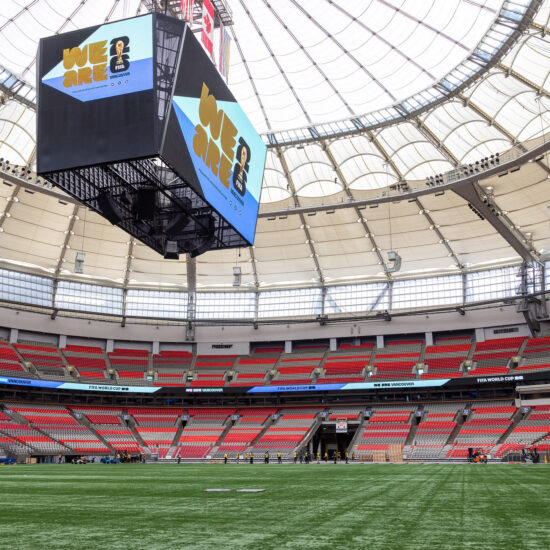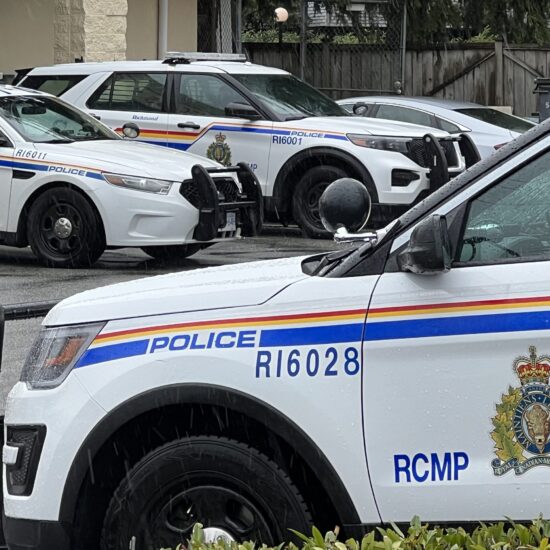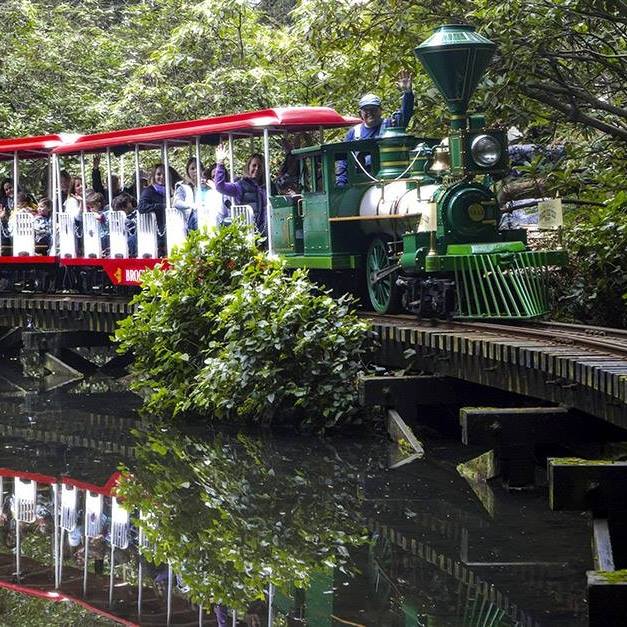
Bob Mackin
The Stanley Park Ghost Train was cancelled at least five days before the Vancouver Board of Parks and Recreation made a public announcement on Sept. 20.
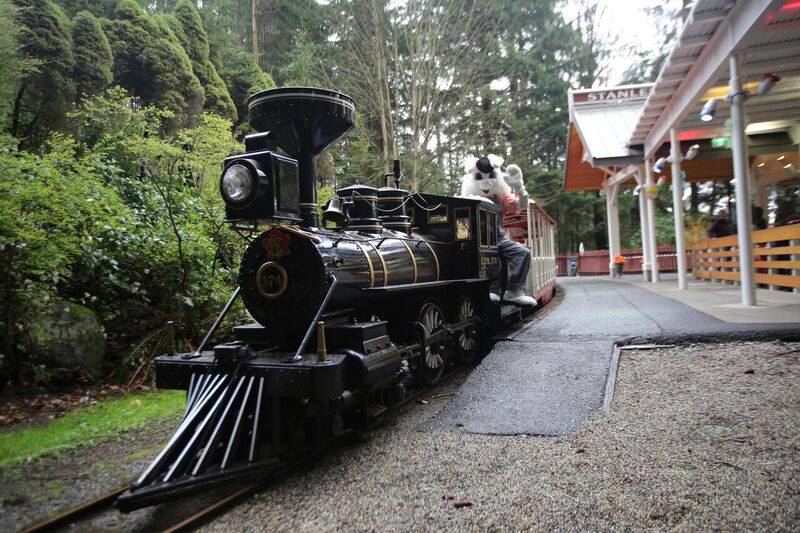
Stanley Park train (Facebook)
Internal email obtained via freedom of information shows the week after a Technical Safety B.C. [TSBC] inspector failed the park’s 2 kilometre miniature railway, Park Board managers already shifted gears to planning Bright Nights in Stanley Park, despite problems with the rolling stock experienced in early summer.
The locomotive called Red A7737 developed an air leak a day before a July 3 email from railway sub-foreman Krista Moyls. She put Green A7739 on-duty, but at least one of the brake shoes locked and had to be put in reverse to correct the problem. Unit A7740, the replica of the Canadian Pacific Railway’s historic transcontinental Engine 374, was a backup locomotive, “but it runs very hot and would like to avoid it during the summer,” Moyls wrote. She added that one of the carriages, named for Hallelujah Point, was making a “weird groaning noise.”
Moyls was all aboard for planning the Hallowe’en and Christmas events in an Aug. 14 email, but conceded two locomotives were out of service and there was a lengthy list of repairs needed, from failing airline valves and starters to the carriage making a creaking noise.
The manual from Wichita, Kansas-based manufacturer Chance Rides said locomotives needed servicing for every 50 hours they are operated, which meant once every 10 days during the Ghost Train and once every six days during Bright Nights in Stanley Park for the two locomotives in regular operation.
“I’m sure [TSBC] will have a list of non-compliance issues that I will have to have rectified before the festivals,” Moyls wrote, in what turned out to be an understatement.
Time was of the essence. The Ghost Train ticketing website was scheduled to go live Sept. 12, but the mood turned sour on the day the safety inspector arrived.
“Our sub-foreman Krista has just informed me that we don’t have a single locomotive that is operating right now,” said train operations team lead Rosemary Yip on Sept. 7. “Though we are temporarily closed, we need a functioning engine soon as we have rehearsals for Ghost Train coming up the third week of September.”
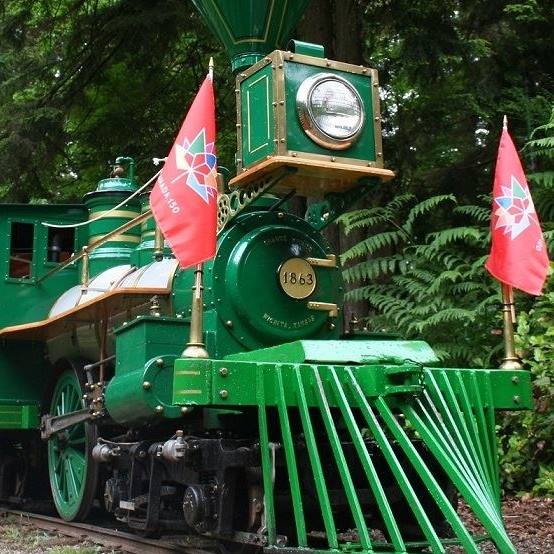
Stanley Park train (Facebook)
TSBC safety officer Dave Lywak ordered the railway shut down in his Sept. 8 report. There was rust and corrosion on the track’s lower surface, rot and decay from heavy moss-growth on the trestle, branches obscuring the conductor’s line of sight.
Lywak found multiple rotten ties and loose spikes marked with flagging tape. Spike heads were not contacting the track, allowing movement as the train passed over. Multiple brakes were not functioning and horizontal and vertical axle play was noticed.
There was excessive wear in the undercarriage of passenger cars and mechanical troubles in each locomotive, such as brakes that didn’t release, overheating, and oil leaks that posed a fire hazard during operation.
“Trains not permitted to operate for public until full condition report has been reviewed by TSBC safety officer and re-assessment has been completed,” Lywak wrote. “All equipment is to meet manufacturer minimum safety requirements.”
A team of four mechanics came to work on the locomotives Sept. 24 and began to order parts and send components out for repair. Managers were tasked with identifying five carriages that could be serviced without extensive work. Bright Nights was still scheduled, but a one-week delay was proposed.
“You won’t be surprised to hear that Chance [Rides] is saying any out of stock parts are eight-to-16 weeks delivery at this point, while delivery would be two weeks for any in stock parts,” Yip wrote on Oct. 4. “I’ve reached out to Richmond Country Farms, who have offered to help by lending anything they have that we might need.”
Then another surprise, when a crucial Oct. 19 visit from a consultant was derailed. Jim Sturgill Jr. of Pacific Northwest Railway Services told Yip on Oct. 17 that seven underwriters refused to provide him a $5 million insurance policy.
“They feel there is possible entanglement that any advice/consulting provided to repair a train to carry passengers has the potential to carry massive liability risk and transfer liability for the safety of the mechanical state of the train to myself,” wrote Sturgill, who said he was talking to a lawyer to find a workaround.
Yip conceded Oct. 31 that manufacturers weren’t responding and the train was unlikely to roll for Bright Nights.
“I take that to mean that Chance is more interested in selling us new trains than helping us fix our old equipment and Industrial Engines must have a lot of work and aren’t looking for more right now,” she said. “Or that this project is too low value to be of interest.”
Yip was already working with the B.C. Professional Fire Fighters Association Burn Fund on a “lights-only” Christmas event. She conceded that Park Board crews were understaffed and didn’t have the expertise to satisfy the safety officer.
“Given that the pressure is off to get a train ready for the end of November, we have time to figure out a plan for how we’re going to get the trains operational again.”
Fleet and manufacturing services superintendent John Pezzolesi replied: “Dealing with Chance Rides has many disadvantages because of U.S. location, exchange rate, cost of parts and availability. As with most shops locally, we are all having mechanic shortages.”
Four days later, on Nov. 3, the official announcement. The railway would not open for the 25th anniversary of Bright Nights.
As the drama unfolded behind the scenes in late October, the Park Board was advertising for an engineering consultant to help electrify the train and source necessary parts. That is now on-hold while staff figure out how to get the railway back on track. A report from Burnaby engineering firm Hedgehog Technologies is expected later this month.
In the meantime, Park Board’s proposed $154.8 million operating budget went before commissioners on Feb. 6. It contemplated spending $1.425 million to operate the train in 2023 — 2.5% less than in 2022. But it also projects $1.885 million revenue.
Support theBreaker.news for as low as $2 a month on Patreon. Find out how. Click here.










